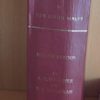
Joint liquidators had to apply to the court be appointed as receivers and managers of property held by them as bare trustee because of uncertainty in the law as to their powers.
The company had never traded in its own right, its only activity having been to act as trustee and to carry on the business of the trust. Once the company went into insolvency, it was disqualified from holding office as trustee. As a result, the company held the property as a bare trustee.
As the Judge explained, the liquidators proceeded on the basis of the principles discussed by the Federal Court in Re South West Kitchens (WA) Pty Ltd [2014] FCA 670, that a liquidator’s power of sale under s 477(2) of the Corporations Act extends to trust property even if the effect of the liquidation is that the company is disqualified from continuing to act.
But the NSW Supreme Court in Re Stansfield DIY Wealth Pty Limited (in liq) [2014] NSWSC 1484 typically came to another contrary conclusion, a circumstance not unknown in the great uncertainties trust law and amongst its lawyers, and among the different judges that deal with such issues.
Because of the uncertainty in the law, the liquidators took the precaution of spending time and creditors’ money in being appointed by the Federal Court as receivers and managers of the trust property so that, in that capacity, they could sell it: see for example cases from Bastion v Gideon Investment [2000] NSWSC 939 to QBE Insurance (Australia) Limited v WA Metal Recycling [2016] FCA 238.
The Court so appointed them: Kite v Mooney, in the matter of Mooney’s Contractors Pty Ltd (in liq) [2016] FCA 886.
Reform of Australian trust law
Too much time in moneys is being spent by insolvency practitioners and their lawyers, and other besides, trying to work out what a recent report says is the “jumble of common law and legislation”, and mixed federal and state laws.
That report is An Alternative Australian Trusts Act: Empirical and Implementation Perspectives, by the University of Sydney Business School and the Financial Services Council, written by Chaikin and Brown. It recommends the codification of trust law in a Commonwealth Act – the Alternative Australian Trusts Act (Cth) (AATA).
Among many recommendations, the report says that an AATA could deal with trust insolvency and could clearly state and regulate the proper distribution of risk among the participants in the relevant financial market. If trusts are to continue to be used as an instrument of commerce the report says it is critical that the risk profile of trust entities be determined by public policy.
Overall, the Report says that Australian trust law is outdated, inaccessible and confusing, not helped, no doubt, by disagreement between judges.
It may provide fertile topics for academics and conference topics, and lawyers instructed to advise, but little else.


